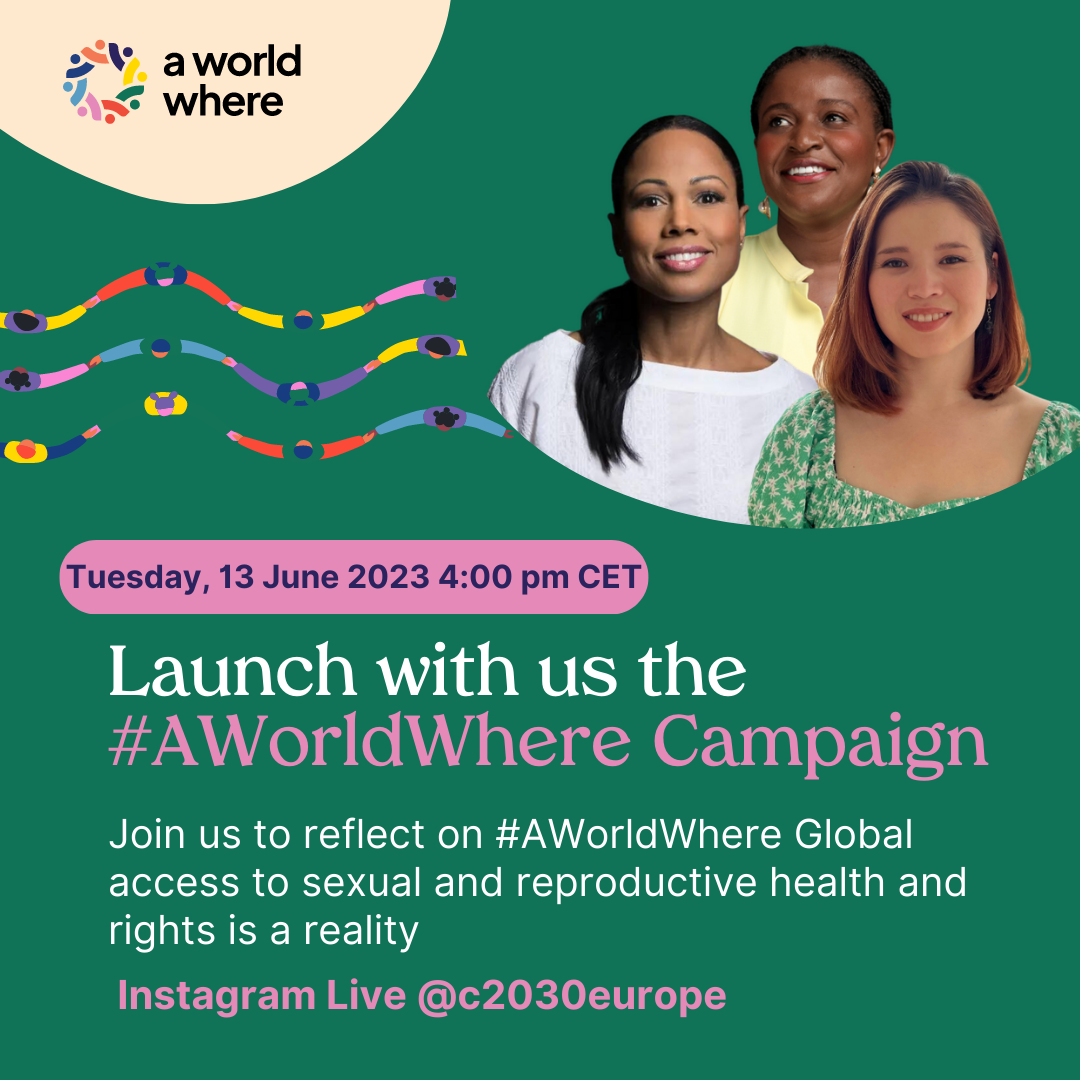Civil society organizations warn that there is a real risk that sexual and reproductive rights will end up being excluded from global frameworks and international commitments, therefore governments should re-affirm their commitments at political and financial level.
Experts from the Spanish Public Administration, international organizations, NGOs, social movements and the university sector gathered to discuss the future of sexual and reproductive health and rights (SRHR).
Universal access to sexual and reproductive health is essential to achieve gender equality, the empowerment and overall the agency of women and, therefore, to achieve the Sustainable Development Goals. It is also a highly profitable investment since it is estimated that interventions in this area achieve a return of 9 to 1, due to its high favorable impact on health.
However, all of the above does not seem sufficient and analysis shows that there is still room for progress. Two examples clearly illustrate this. The Guttmacher Institute estimates that 214 million women worldwide who want to avoid or delay a pregnancy do not have access to effective contraception, which results in 74 million unintended pregnancies each year in low- and middle-income countries. Furthermore, there are 200 million women and girls who have undergone female genital mutilation in 20 countries in Africa and the Middle East.
There are several international developments that hinder progress to universal access to sexual and reproductive health. In recent years, there has been a decrease in public international funds earmarked for this objective and a growing opposition from coercive movements against achievements already made. This means that there is still a real risk that these hard gained rights might end up being excluded from policy agendas and deprioritised by goverments, especially during health crises such as the one we are currently experiencing as a result of COVID-19.
In response, civil society calls on the international community to mobilize the necessary financing to comply with the Program of Action of the Cairo International Conference on Population and Development and the Beijing Platform for Action. Spain, as a global actor, cannot ignore its responsibility and must play an active role in helping to sustain the progress made, slow down regressive discourses and avoid any setbacks caused by the exploitation of the current health crisis.
Voices from our sector
Eva del Hoyo, Deputy Director General for Planning and Policy Coherence at DGPOLDES (Ministry of Foreign Affairs, European Union and Cooperation), pointed out that the response to the COVID-19 pandemic should incorporate a feminist approach and take sexual and reproductive rights into account. She also highilighted that
“the commemoration of Beijing + 25 is a unique opportunity to not let your guard down and fight against setbacks that are on the table. The Generation Equality Forum is a key space to reaffirm the commitment to sexual and reproductive rights”.
Dr. Alvaro Bermejo, IPPF Director General, has drawn attention to the practices of some governments that are using the COVID-19 crisis to limit women and girls’ access to sexual and reproductive health services.
“The forces that oppose sexual and reproductive rights are increasingly aggressive and violent, and are more organized”.
This costs lives. In terms of solutions, he has highlighted the need for continued political will and investment in strengthening health systems and the inclusion of sexual and reproductive care in these systems, always by adopting a equitable and gender sensitive approach.
Luis Mora, from UNFPA, has emphasized the lack of continuity of essential services due to COVID-19, among which are those related to sexual and reproductive health. This has had serious consequences since
“women cannot wait to give birth, nor for prenatal controls, nor for the exercise of their sexual and reproductive rights”.
There have been enormous advances that have occurred in the area of sexual and reproductive rights since the ICPD in 1995, especially on issues such as reducing maternal mortality, information and access to modern contraceptives, progressive legislation and policies, reduction of female genital mutilation and child marriage. However, the sexual and reproductive rights agenda is still unfinished.
Felicitas Ibáñez, from Médecins du Monde, highlighted that it is usual in health crises to see cuts and interruptions in sexual and reproductive health services due to limited resources. In addition,
“Women arrive later at health services because they are caretakers. You have to take into account gender roles in these crises ”.
The case of COVID-19 has not been an exception.
Article by FPFE, Spanish partner in Countdown 2030 Europe
This discussion was part of the series of webinars organised by FPFE, titled “Gender equality for the (re) construction of a sustainable world”.




